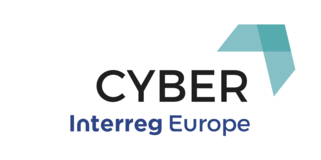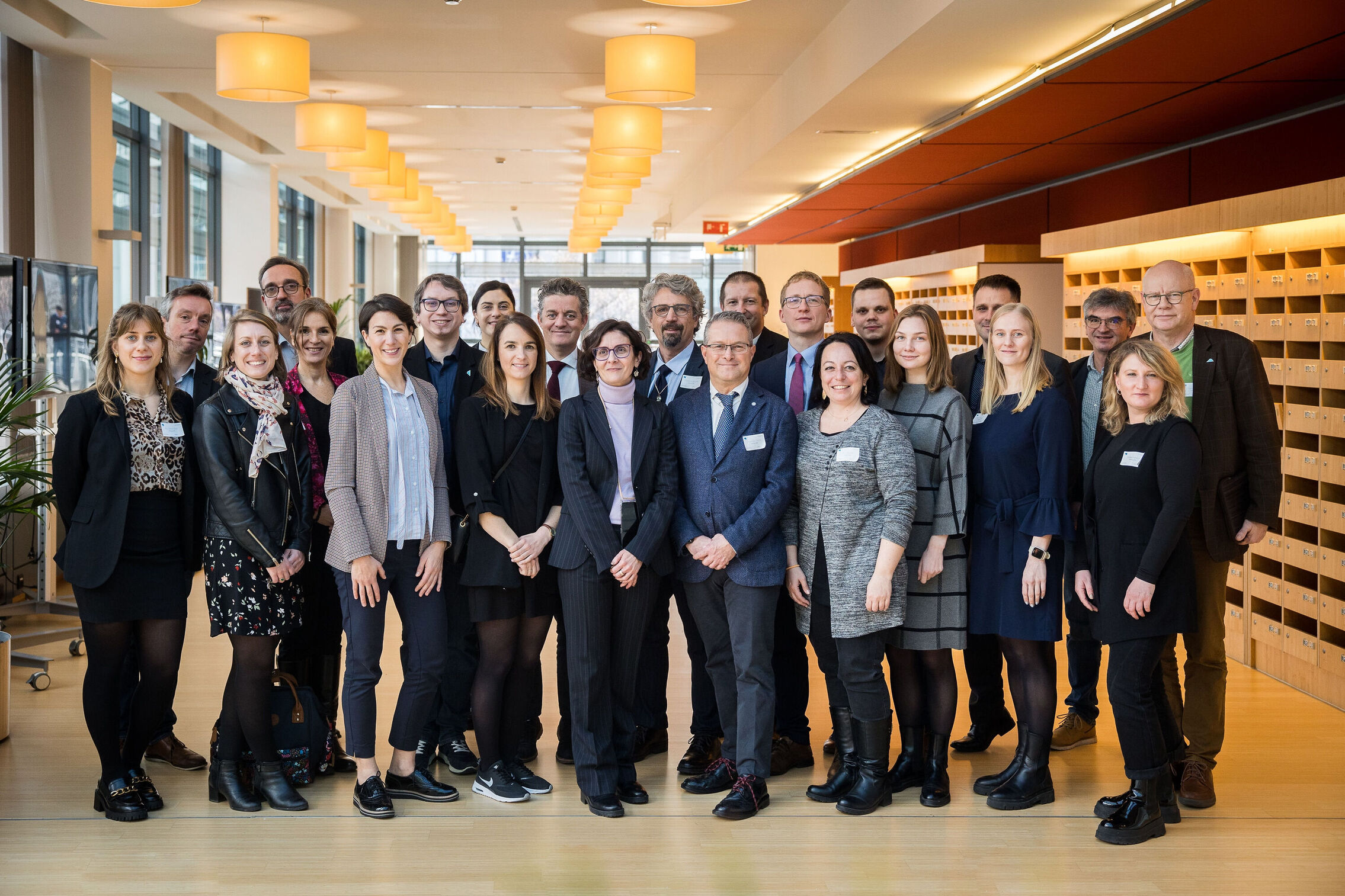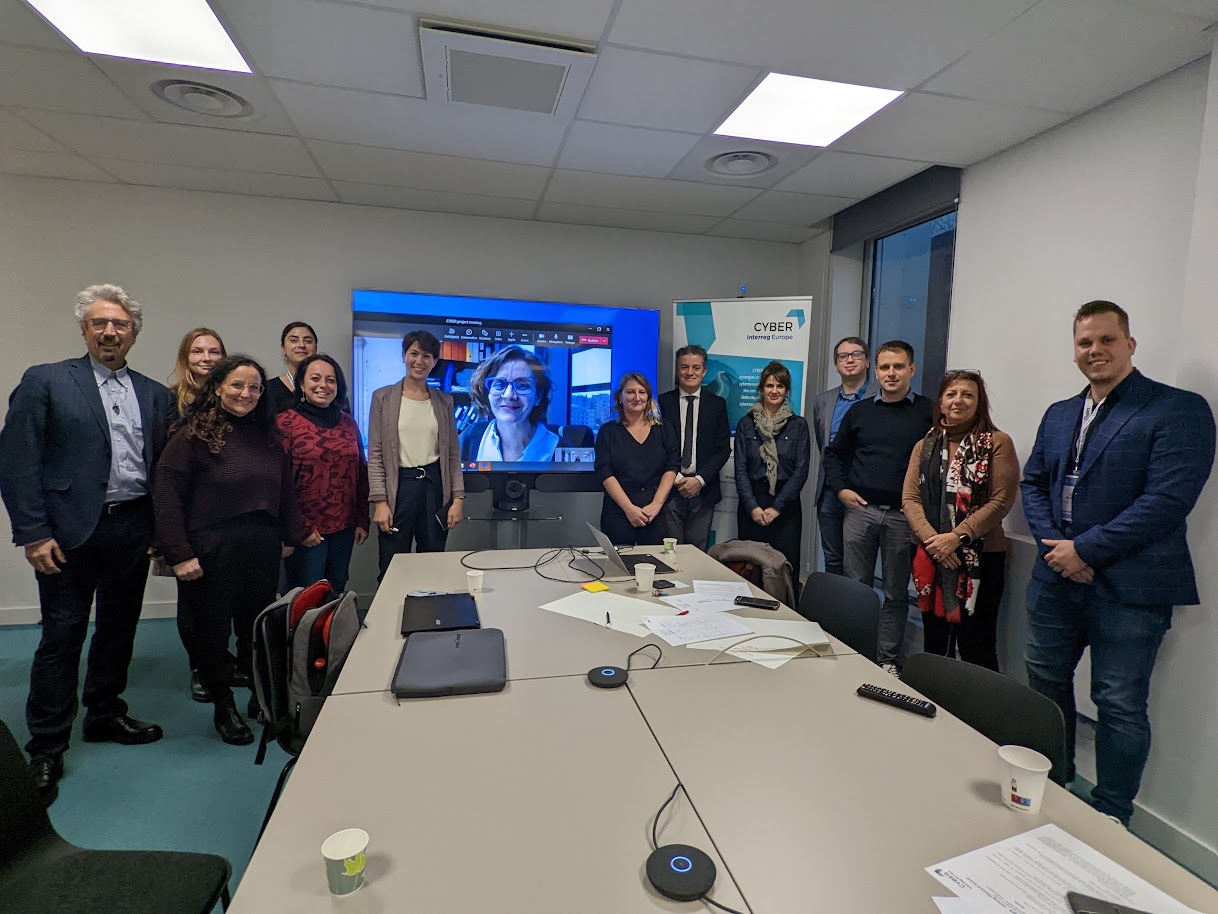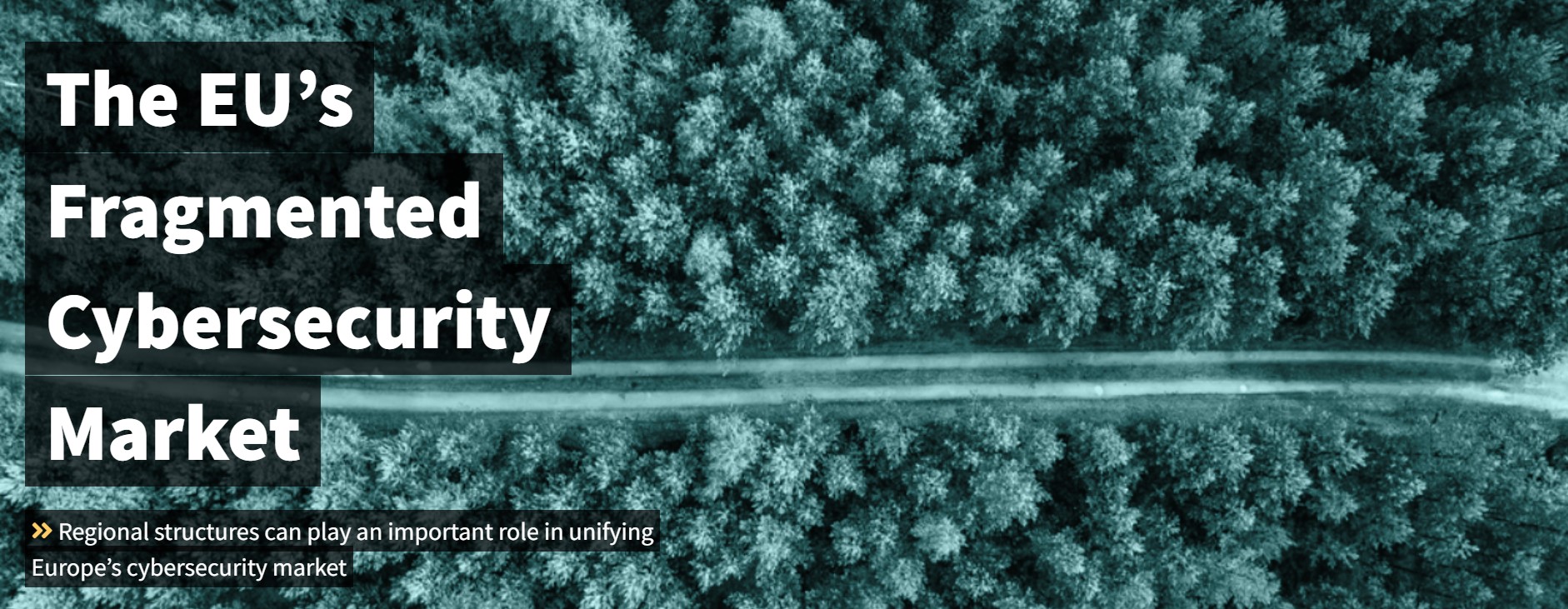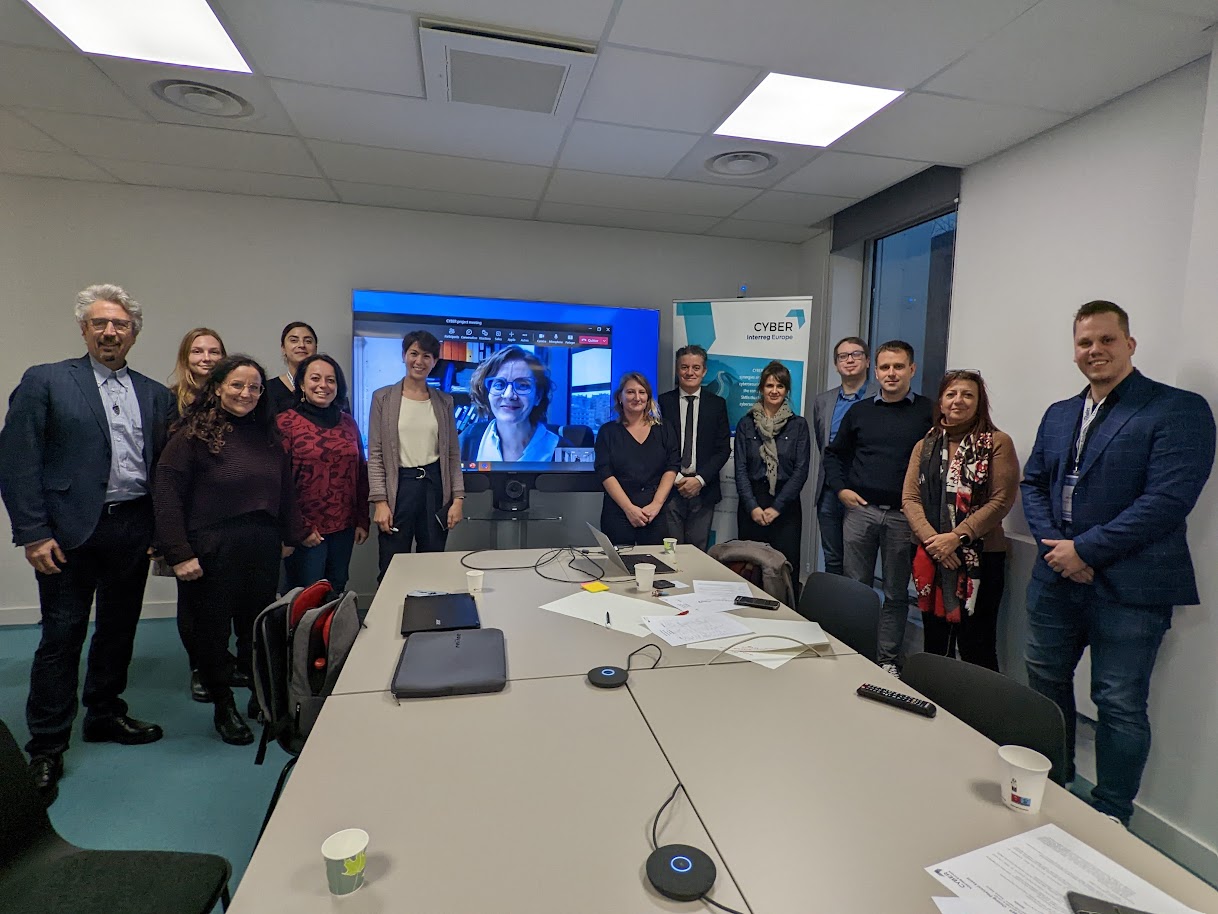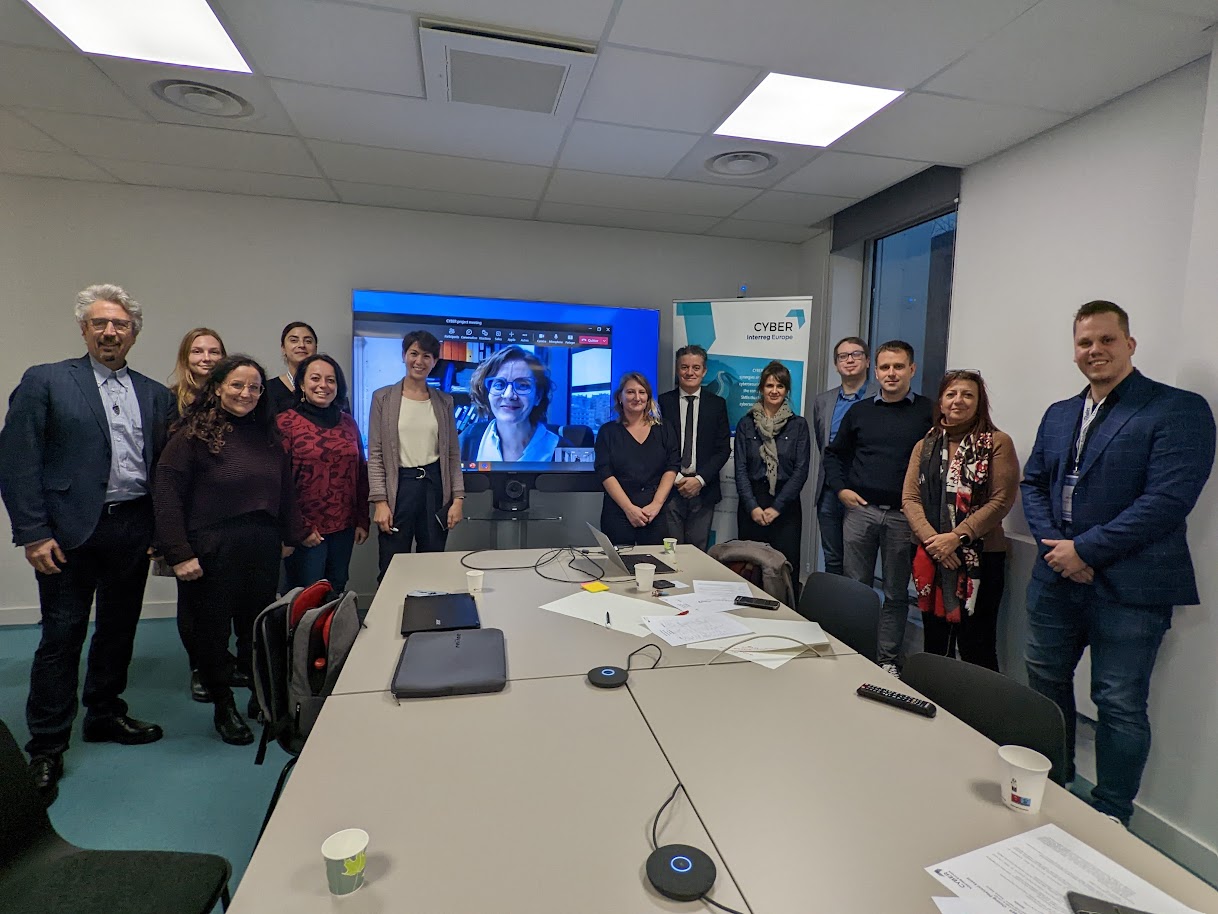Phase 2 of Interreg Europe CYBER project consists in monitoring the implementation of the Action Plans (APs) of CYBER partners. As this is a progressive stage, on 27th April, an online meeting took place aiming at sharing the current situation of each partner and whether some advances were made until the moment.
Starting with the Agency of Innovation, Business Financing and Internationalization of Castilla y León (Spain), their main objective is to increase the competitiveness of SMEs mainly through the call for grants “Promotion of Innovation SMEs” which finances the innovation projects coming from SMEs. To achieve this, they promoted the call by implementing different communication channels and holding informative workshops. Two conclusions shared at the meeting were the cruciality of the stakeholders’ role on the promotion of the call and the decrease of investments experienced due to the financial crisis generated by COVID-19.
Tuscany Region’s (Italy) AP introduces vouchers for cybersecurity solutions provided by SMEs and seeks the formalisation of the coordination mechanism of the regional cybersecurity ecosystem. Currently, the range of actions is widening not only to SMEs but also to Health and Public sectors and a lot of effort is put in raising awareness and training the health centres.
Digital Wallonia Agency (Belgium), its AP works on the creation of a call to improve the cybersecurity level of SMEs and the matchmaking among cybersecurity providers and SMEs in need of their services. This initiative is still in an early stage, but once put into practice, its final goal will be to establish a recurrent call for financing high quality and innovative projects.
Košice IT Valley (Slovakia) aimed at revising the Smart Industry Strategy which did not address sufficiently the challenge of innovating SMEs in cybersecurity. The objective now is to improve the information given about the local market and the needs of SMEs and to target new groups such as women and students.
Information System Authority (Estonia) has two initiatives within its AP. On the one hand, the development programme for the Competitive Industries and Innovation Program (CIIP) and the implementation of SMEs Cybersecurity Standards and Tools which objective is to increase the awareness and level of cybersecurity of smaller essential providers and parties of the Cybersecurity Act. This development programme has been successfully implemented in the water companies who are operators of essential services (OES) and the next steps are to continue with other sectors. On the other hand, the implementation of the Cyber Breakfast has received positive feedback and the idea is to organise it on a regular basis.
Regional Council of Brittany (France) also carries out two main actions. Firstly, to implement a specific support system and a service provision for Brittany businesses within the framework of and European Digital Innovation Hub (EDIH). The project proposal has been submitted and once it is approved, a set of individual services that begins with a maturity assessment and a digital diagnosis followed by an action plan will be proposed to SMEs and administration. Secondly, to set up joint cybersecurity programs, for this, two experimental cyber training courses were developed and more information regarding the needs on cybersecurity skills is still being collected.
The Action Plan of the Chamber of Commerce and Industry of Slovenia (Slovenia) consists mainly in promoting innovative Cybersecurity SMEs in the renewed Cybersecurity Strategy of Slovenia. Due to external factors, the Strategy has been prolonged, however, some of the actions addressing the cybersecurity SME’s needs and that have been proposed to be included in the Cybersecurity Strategy, have been already implemented and there is a continuous monitoring of the progresses made.
After kicking off all CYBER partners’ Action Plans, more improvements and updates are expected to be made in the upcoming months with the objective of accomplishing the complete implementation of the APs and be a step closer to the unification of a European cybersecurity ecosystem.
